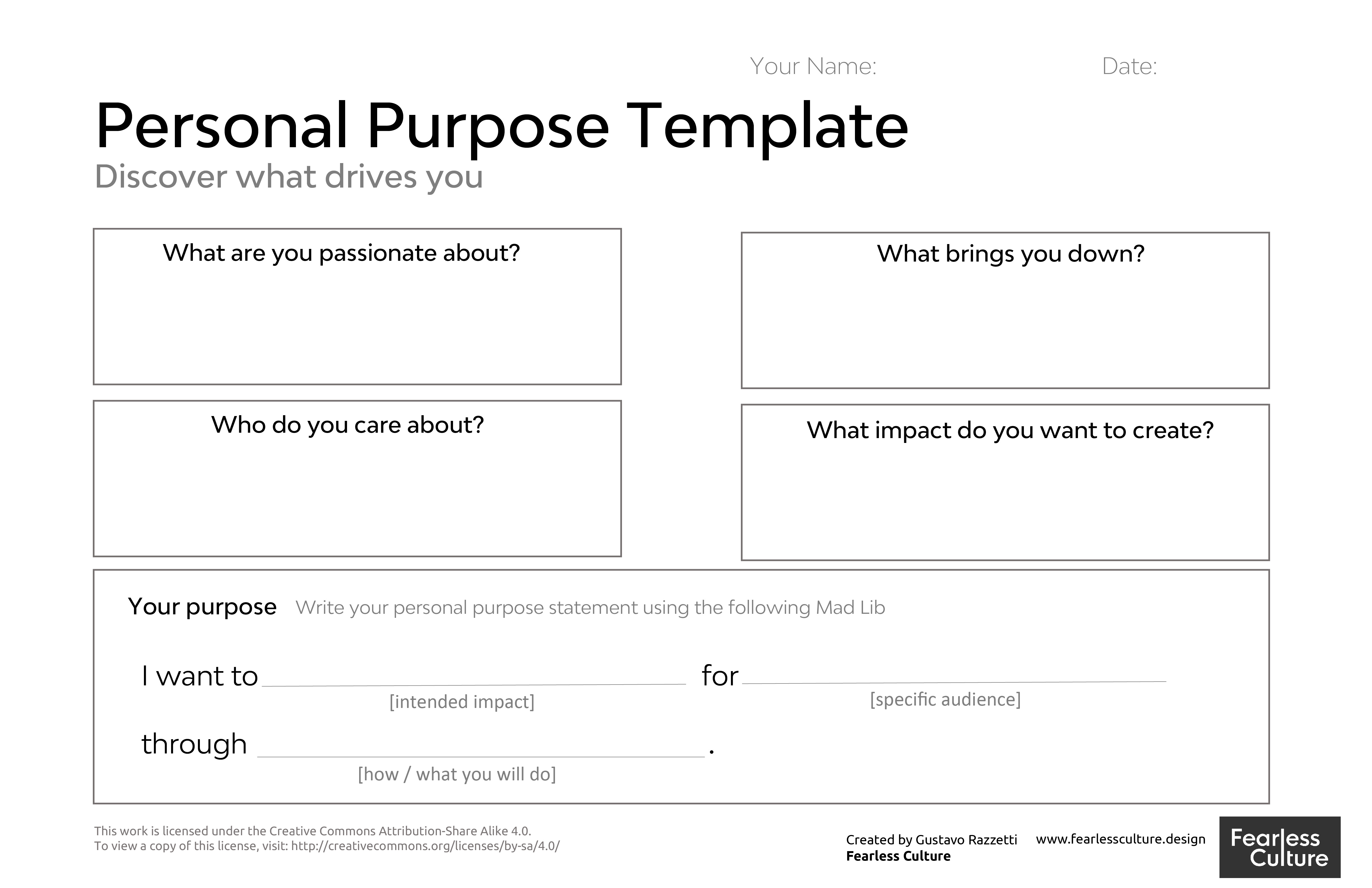The Good Life: Finding Purpose And Fulfillment

Table of Contents
Defining Your Purpose: The Foundation of The Good Life
Identifying your purpose is arguably the most crucial step towards building "The Good Life." It involves understanding your core values and aligning your actions with them. This creates a sense of direction and meaning, fueling your motivation and providing a framework for decision-making. Without a clear sense of purpose, it's easy to feel lost and unfulfilled, even amidst material success.
Identifying Your Values
Understanding your values is paramount. Several exercises can help you uncover what truly matters to you.
- Journaling: Spend some time reflecting on moments when you felt most alive, joyful, or fulfilled. What were you doing? What values were being expressed?
- Self-Reflection: Quietly consider what qualities you admire in others and what principles guide your decisions.
- Values Clarification Exercise:
- Step 1: Brainstorm a list of potential values (e.g., creativity, connection, contribution, growth, freedom, security, family, health, learning, spirituality).
- Step 2: Rank these values in order of importance to you.
- Step 3: Reflect on how these values manifest in your current life. Are you living in alignment with them?
Examples of core values include:
- Creativity: Expressing yourself through art, writing, or innovation.
- Connection: Nurturing meaningful relationships with loved ones.
- Contribution: Making a positive impact on the world.
- Growth: Continuously learning and developing your potential.
- Freedom: Having autonomy and independence in your choices.
Setting Meaningful Goals
Once you've identified your values, translate them into actionable, meaningful goals. These goals should be SMART:
- Specific: Clearly defined and easily understood.
- Measurable: Progress can be tracked and quantified.
- Achievable: Realistic and within your capabilities.
- Relevant: Aligned with your values and overall purpose.
- Time-bound: With a specific deadline or timeframe.
Breaking down large, overarching goals into smaller, manageable steps makes them less daunting and increases your chances of success. For example, if your goal is to "improve your health," you might break it down into smaller goals like "exercise three times a week," "eat five servings of fruits and vegetables daily," and "get seven to eight hours of sleep each night."
Cultivating Strong Relationships: The Social Aspect of The Good Life
Strong social connections are essential for a fulfilling life. Humans are inherently social creatures, and meaningful relationships provide support, belonging, and a sense of purpose. Nurturing these relationships is vital for overall well-being.
Nurturing Existing Relationships
Invest time and effort in strengthening your existing relationships. This involves:
- Quality Time: Schedule dedicated time to spend with loved ones, engaging in activities you both enjoy.
- Active Listening: Truly listen and understand what others are saying, without interrupting or judging.
- Open Communication: Express your thoughts and feelings honestly and respectfully, fostering trust and understanding.
Strategies for strengthening bonds include:
- Regular communication: Make an effort to stay in touch regularly, even if it's just a quick phone call or text message.
- Shared experiences: Create new memories together by engaging in shared activities, such as traveling, attending events, or participating in hobbies.
- Conflict resolution: Learn healthy ways to resolve disagreements and maintain a strong foundation of trust.
Building New Connections
Don't be afraid to expand your social circle. Engaging in activities that foster social interaction can lead to new friendships and enriching experiences.
- Join clubs or groups: Find groups based on shared interests, such as book clubs, hiking groups, or volunteer organizations.
- Volunteer: Giving back to your community is a rewarding way to meet new people and make a difference.
- Take classes: Learning a new skill is a great way to meet like-minded individuals and expand your horizons.
Tips for making new friends:
- Be approachable and friendly: Smile, make eye contact, and initiate conversations.
- Participate actively in group activities: Engage in conversations and show genuine interest in others.
- Follow up: Exchange contact information and make plans to meet again.
Prioritizing Well-being: The Physical and Mental Pillars of The Good Life
Physical and mental health are cornerstones of "The Good Life." Neglecting either will significantly impact your overall well-being and ability to experience fulfillment.
Physical Well-being
Taking care of your physical health is essential. This involves:
- Regular exercise: Aim for at least 150 minutes of moderate-intensity aerobic activity or 75 minutes of vigorous-intensity aerobic activity per week.
- Healthy eating: Focus on a balanced diet rich in fruits, vegetables, whole grains, and lean protein.
- Sufficient sleep: Aim for seven to nine hours of quality sleep per night.
Recommendations for incorporating physical activity:
- Find an activity you enjoy: Whether it's swimming, dancing, hiking, or biking, choose an activity that motivates you to stay active.
- Make it a habit: Schedule regular exercise times in your calendar and treat them as non-negotiable appointments.
- Start small and gradually increase intensity: Don't try to do too much too soon; gradually increase the duration and intensity of your workouts.
Mental Well-being
Mental health is just as crucial as physical health. Strategies for managing stress and promoting mental well-being include:
- Mindfulness practices: Meditation, yoga, and deep breathing exercises can help to reduce stress and improve focus.
- Stress management techniques: Identify your stressors and develop coping mechanisms, such as time management, setting boundaries, and seeking support from others.
- Seeking professional help: If you're struggling with your mental health, don't hesitate to seek professional help from a therapist or counselor.
Resources for mental health support:
- Therapists and counselors: Many mental health professionals offer individual and group therapy sessions.
- Helplines: Numerous helplines are available to provide support and guidance during difficult times.
- Online resources: Many websites and apps offer helpful information and tools for managing mental health.
Embracing Growth and Continuous Learning: The Evolving Good Life
"The Good Life" isn't a static state; it's a journey of continuous growth and learning. Embracing new experiences and challenges helps you expand your horizons, develop resilience, and discover new aspects of yourself.
Seeking New Experiences
Stepping outside of your comfort zone is essential for personal growth. This might involve:
- Exploring new hobbies: Try something completely new, whether it's painting, learning a musical instrument, or taking a cooking class.
- Traveling: Immerse yourself in different cultures and experiences, expanding your perspective and understanding of the world.
- Taking workshops or courses: Invest in your personal and professional development by taking courses or workshops that enhance your skills and knowledge.
Benefits of lifelong learning:
- Increased knowledge and skills: Expanding your knowledge base enhances your abilities and opportunities.
- Enhanced creativity and problem-solving skills: Learning new things sparks creativity and improves your ability to think critically.
- Greater personal fulfillment: Continuously learning and growing contributes to a sense of purpose and satisfaction.
Embracing Challenges and Resilience
Life inevitably presents challenges and setbacks. Developing resilience and coping mechanisms is crucial for navigating adversity and bouncing back from difficulties.
- Positive mindset: Cultivate a positive outlook and focus on solutions rather than dwelling on problems.
- Self-compassion: Treat yourself with kindness and understanding, recognizing that everyone makes mistakes.
- Self-care: Prioritize activities that nourish your physical and mental health, such as spending time in nature, exercising, or practicing mindfulness.
Strategies for building resilience:
- Identify your strengths: Recognize your capabilities and resources to overcome challenges.
- Learn from your mistakes: View setbacks as opportunities for learning and growth.
- Seek support from others: Lean on your support network for encouragement and guidance during difficult times.
Conclusion
Achieving "The Good Life" is a multifaceted process involving defining your purpose, nurturing strong relationships, prioritizing well-being, and embracing continuous growth. By actively pursuing these areas, you'll build a foundation for a more meaningful, fulfilling, and joyful life. Start your journey towards The Good Life today! Discover your purpose and build your good life. Take the first step towards a more fulfilling good life and begin living intentionally.

Featured Posts
-
 16 Million Fine For T Mobile Details Of Three Years Of Security Failures
May 31, 2025
16 Million Fine For T Mobile Details Of Three Years Of Security Failures
May 31, 2025 -
 Explore Germany Two Weeks Of Free Accommodation In A German City
May 31, 2025
Explore Germany Two Weeks Of Free Accommodation In A German City
May 31, 2025 -
 Concerns Grow As Who Links New Covid 19 Variant To Increased Cases
May 31, 2025
Concerns Grow As Who Links New Covid 19 Variant To Increased Cases
May 31, 2025 -
 The Good Life Finding Purpose And Meaning In Your Daily Life
May 31, 2025
The Good Life Finding Purpose And Meaning In Your Daily Life
May 31, 2025 -
 What Is The Good Life Defining Your Path To Well Being
May 31, 2025
What Is The Good Life Defining Your Path To Well Being
May 31, 2025
